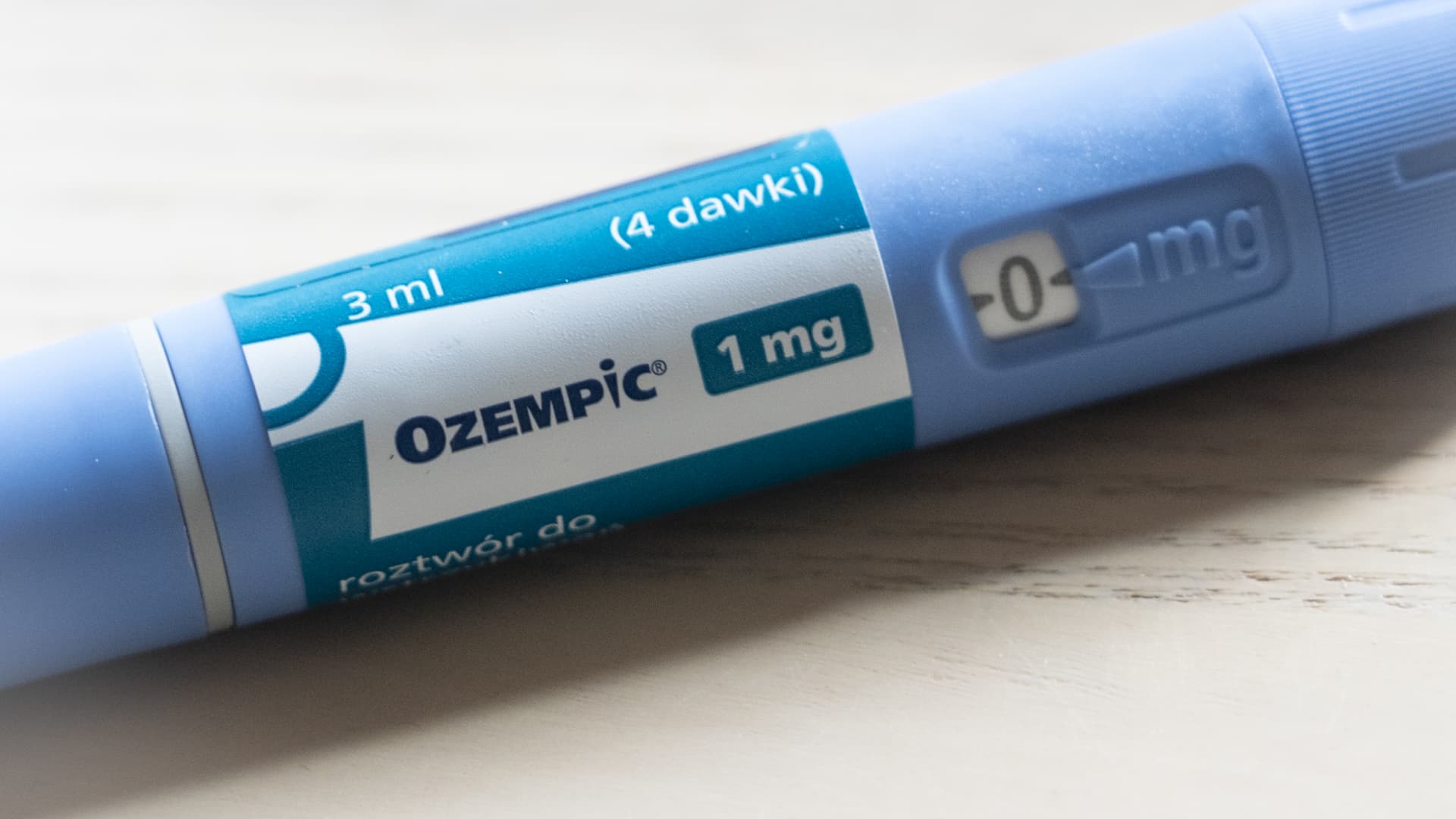An Ozempic (semaglutide) injection pen is prominently displayed on a kitchen table in Riga, Latvia on 06 August, 2023. This captivating image sets the stage for the story of Heather Le Biller, a flight attendant living in France, who experienced impressive weight loss after starting treatment with Novo Nordisk’s diabetes drug, Ozempic. Le Biller initially shed 9 pounds within the first week and continued to lose weight over time. As an added benefit, she noticed a decrease in her cravings for alcohol, particularly wine, which had become customary for her to enjoy with dinner.
There is a growing number of individuals who, like Le Biller, have reported a reduction in cravings for alcohol, nicotine, opioids, and even compulsive behaviors like online shopping and gambling while taking GLP-1 agonist drugs such as Ozempic and Wegovy, which are designed to suppress appetite by mimicking a hormone in the gut. This finding adds to the already astounding popularity of these drugs, despite their high cost of around $1,000 per month and some insurers discontinuing coverage.
Dr. Angela Fitch, president of the Obesity Medicine Association, explains that while these drugs are primarily prescribed for weight loss, the secondary benefits, such as reduced cravings and addictive behaviors, are being observed in patients. This includes positive impacts on issues like online shopping addiction, resulting in financial benefits for individuals.
GLP-1 agonists’ potential as addiction treatments is not a new concept, as studies have shown their ability to curb alcohol intake in animals. However, further research on humans is needed in order to gain regulatory approval. Currently, Novo Nordisk is not pursuing research in this area, but scientists like Dr. Lorenzo Leggio from the National Institute on Drug Abuse are making significant progress in exploring the potential of GLP-1 agonists as addiction treatments.
Several studies have demonstrated the positive effects of GLP-1 agonists on addictive behaviors in animals. The promising results have been observed with newer and more potent drugs like semaglutide (Ozempic and Wegovy) and dulaglutide (Trulicity). These drugs have shown a significant reduction in alcohol consumption in animals and have even prevented relapse after stopping treatment.
While the animal research is promising, it’s important to note that more double-blind, randomized, placebo-controlled studies on humans are needed to confirm these effects. Researchers like Dr. Leggio emphasize the importance of scientific evidence and caution against off-label use of GLP-1 agonists for addiction treatment.
Even if clinical trials confirm the efficacy of GLP-1 agonists, the treatment may not work for everyone, as individual responses can vary. In a study on exenatide, another GLP-1 agonist, the drug was found to reduce drinking in individuals with obesity but increased drinking in leaner participants. It’s essential to conduct further research to understand the mechanisms behind these responses.
Furthermore, the duration of the anti-addiction effect of GLP-1 agonists is still unknown. Weight loss achieved with drugs like Ozempic and Wegovy often results in regain over time. While GLP-1 agonists may help curb addictive behaviors initially, there is a potential for relapse if the medication is discontinued. Addiction is a chronic disease, and some individuals may require long-term treatment.
However, there’s nothing wrong with combining GLP-1 agonists with treatments for diabetes or obesity to address addiction simultaneously. Patients can seek these medications to manage blood sugar levels while potentially benefiting from the impact on their drinking or smoking habits. However, those seeking GLP-1 agonists solely for addiction should wait for more evidence.
While it may take several years to gain regulatory approval, scientists and health experts are hopeful that GLP-1 agonists could be a new class of treatments for addiction. The potential benefits on addictive behaviors, combined with their existing uses for diabetes and weight loss, make these medications an exciting area of research.
Denial of responsibility! Vigour Times is an automatic aggregator of Global media. In each content, the hyperlink to the primary source is specified. All trademarks belong to their rightful owners, and all materials to their authors. For any complaint, please reach us at – [email protected]. We will take necessary action within 24 hours.


